
TCS Case Study: Business Model, Financial Statement, SWOT Analysis
The Indian IT industry is a global powerhouse, contributing to the nation’s economic growth. With the digital revolution, this industry has the potential to offer exciting investment opportunities for investors. However, with several IT companies vying for attention, TCS has been at the forefront of the global IT industry for over 5 decades. With an unwavering commitment to innovation and digital transformation, the company has played a vital role in empowering organizations to harness the power of technology.
In today’s blog, we will explore TCS’s rich history, business model, and services it offers.
Table of Contents
TCS Company Overview

Tata Consultancy Services (TCS) is an Indian multinational IT services and c7onsulting company. TCS is headquartered in Mumbai and has more than 6,00,000 employees in 55 countries.
TCS was founded in 1968, when Mr Faqir Chand Kohli, known as the Father of India’s IT industry, brought together a young team of IT professionals to provide punched card services to its sister company, TISCO (now Tata Steel). In the early years, TCS played an important role in establishing India’s IT industry. It was one of the first companies to provide software development and IT services. TCS has expanded its operations beyond India to have a significant presence in countries across America, Europe, Asia Pacific, the Middle East, and Africa, recognizing the growth opportunities in the global market.
Business Model OF TCS
TCS operates on a service-based business model that allows it to offer tailored solutions to meet each client’s specific needs. This approach has contributed to TCS’s success in building long-term relationships with its customers.
TCS offers a range of IT services, which are discussed in the next section.
Services offered by TCS
TCS offers the following services:
- TCS BaNCS – A banking and financial solutions platform. 8 out of the top 10 custodian and asset management firms run on TCS BaNCS. This service is used by 30% of the global population in over 100 countries.
- TCS ADD – ADD stands for Advanced Drug Development, and TCS ADD is an advanced software suite that uses AI to transform drug development and clinical trials.
- TCS CHROMA – It is a cloud-based HRMS platform with in-built intelligence and smart automation. HRMS stands for human resource management system
- TCS OmniStore – It is an AI-powered commerce platform for seamless customer experiences. It offers a unified, personalized checkout experience for shoppers on different channels.
- Ignio – AI-driven automation platform for IT and business operations with end-to-end closed-loop automation
- TCS MasterCraft – Digital platform to optimally automate and manage IT processes.
- Quartz Smart Solutions – It combines on-chain services deployed on blockchain and off-chain services residing in traditional files. The service ensures that business processes that are well suited for the blockchain are deployed on it.
Furthermore, their customer-centric approach ensures that TCS products not only meet the needs and expectations of customers but also drive tangible results and create value for their businesses. With a deep understanding of market trends and technologies, TCS can deliver innovative solutions that make a difference.
Market Details of TCS
| INR 4,196 | |
| INR 15,17,719 Crores | |
| INR 4,431 | |
| INR 3,311 | |
| 31.9 |
TCS Financial Statements
Income statement.
| 2,45,315 | 2,28,907 | 1,95,772 | |
| 1,82,540 | 1,71,221 | 1,43,301 | |
| 46,099 | 42,303 | 38,449 |

Balance Sheet
| 1,46,449 | 1,43,651 | 1,41,514 | |
| 55,130 | 52,445 | 51,668 | |
| 90,489 | 90,424 | 89,139 |

Cash Flow Statement
| 44,338 | 41,965 | 39,949 | |
| 6,026 | 39 | -897 | |
| -48,536 | -47,878 | -33,581 |

Key Performance Indicators
| 50.73 | 46.61 | 42.99 | |
| 63.51 | 57.63 | 52.91 | |
| 28.52 | 27.81 | 29.67 | |
| 0 | 0 | 0 |
SWOT Analysis OF TCS

- TCS has global operations that allow it to offer affordable and high-quality IT services to clients all over the world.
- TCS focuses on industry-specific solutions and has expertise in providing IT solutions to the banking, finance, insurance, retail, and manufacturing sectors.
- It has a large and skilled workforce, allowing it to handle complex IT projects.
- Being a part of the TATA group of companies, TCS benefits from robust financial support, which empowers it to make significant investments in research and development, acquisitions, etc.
- TCS relies heavily on a few major clients, which is risky.
- Talent retention is a challenging task, as it needs to maintain a high level of employee satisfaction and ensure that they stay loyal to the company.
- Geographical concentration can have a significant impact on revenue when there is an over-dependence on specific regions.
Opportunities
- TCS can benefit from the increasing demand for digital transformation services.
- Exploring opportunities in AI, the Internet of Things (IoT), blockchain, and other emerging technologies can help TCS grow.
- TCS can also focus on strengthening its partnerships with technology providers to gain a competitive edge in the market and enhance its offerings.
- The IT industry is very competitive, with many global companies competing for market share.
- Global economic recessions can cause a decrease in IT expenditure.
TCS has firmly established itself as a global IT services behemoth and is renowned for its robust financial position, large talent pool, and wide range of services. The company’s focus on new technologies and flexibility in adapting to changing markets have been important for its success. Despite facing intense competition and economic uncertainties, TCS carries out its business operations efficiently. To maintain its leadership, the company must invest in research and development, build strong client relationships, and effectively manage risks.
Frequently Asked Questions (FAQs)
Does tcs cater to any specific industry.
Yes, TCS caters to several industries, with a strong focus on BFSI (Banking, Financial and Insurance), retail, healthcare, and manufacturing.
What is the work culture at TCS?
TCS is known for its employee-friendly culture, teamwork, and diversity.
Is TCS involved in any social initiatives?
Yes, TCS has a strong commitment towards Corporate Social Responsibility (CSR) and is involved in several community development programs.
What is the TCS’s vision for the future?
TCS aims to be the world’s leading digital transformation partner by using technology and creating value for its clients and society.
Should I invest in TCS?
TCS can be a good investment option. However, it is crucial to consult your financial advisor before making any financial decision.
Related Posts

Suzlon Energy Case Study: Business Model, Financial Statement, SWOT Analysis

Vedanta Case Study: Business Model, Financial Statement, SWOT Analysis

Yes Bank Case Study: Business Model, Financial Statement, SWOT Analysis
Pocketful is an advanced trading platform that empowers traders with cutting-edge technology. we provide innovative tools and resources to make trading more accessible and practical., quick links.
- Open an Account
- Pocketful Web
- Pocketful App
- Investment Tool
- Trading Tool
- Support Portal
- Referral Program
- Calculators
- Stocks Pages
- Government Schemes
- Index Heat Map
- Stock Screener
- Mutual Funds
- Terms & Conditions
- Policies & Procedures
- Privacy Policy
- Press & Media
We are a concern of PACE Group. Pocketful is an investing platform that helps people be better investors. Pocketful unlocks the discoverability of new investment and trading ideas.
Join the waitlist.
Add your details and start your journey toward a better future with Pocketful in your investing career.
You have successfully subscribed to the newsletter
There was an error while trying to send your request. Please try again.
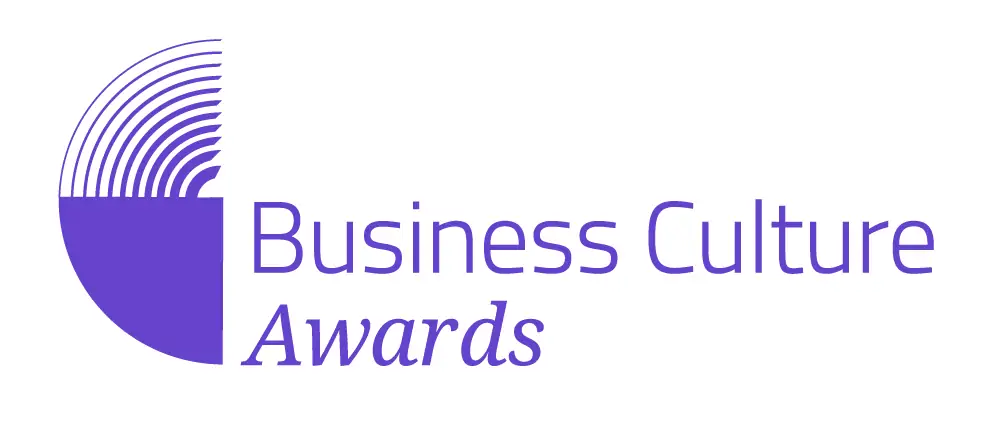
- Award Categories
- Winners 2023
- International Winners 2023
- Awards Night 2023
- Register to enter
- Winners 2022
- Awards Night 2022
- Winners 2021
- Awards Night 2021
- Winners 2020
- Winners 2019
- Winners 2018
- Winners 2017
- Winners 2016
- Business Culture Case Studies & Insights
- News & Insights from Winners & Partners
- Executive Breakfast – 25 September 2024
- Webinar: Managing for growth – View On-Demand
- Webinar: UK Workplace Culture Study 2024 – View On-Demand
- Conference May 2024 – View Sessions on Demand Now
- Business Culture Connected Speakers 2024
- Previous Events and Speakers
- EMCC UK – Coaching & Mentoring Partner
- Gattaca Solutions – Talent Partner
- Quirk Solutions
- Engage for Success – Employee Engagement Partner
- The People Space – Media Partner
- Become a Partner
Business Culture Awards
Case study – tata consultancy services.
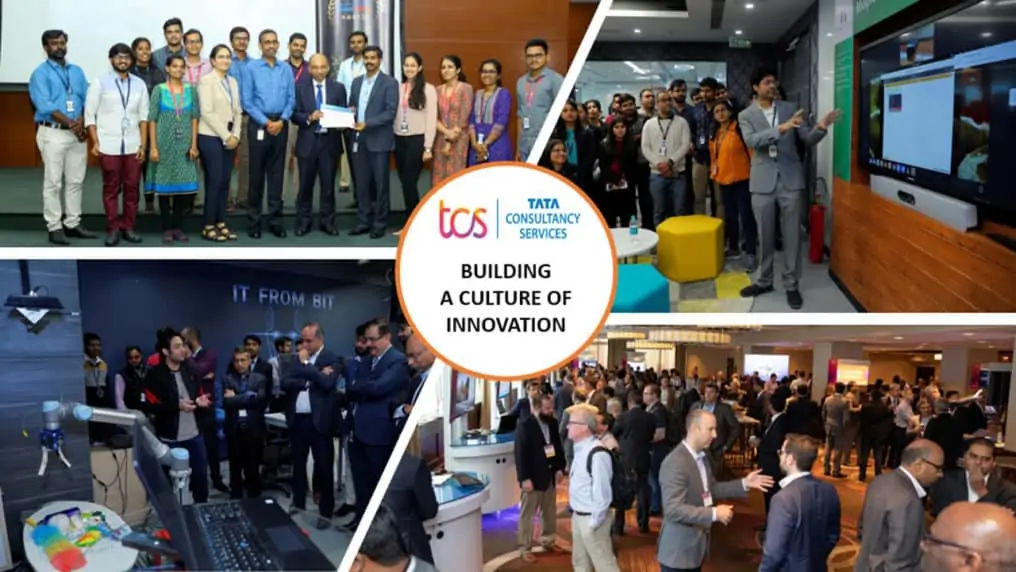
Tata Consultancy Services (TCS), a multinational organization in IT Services, Consulting and Business Solutions, with over 469,000 of the world’s best-trained consultants in 46 countries, has established itself as a pioneer in Software Research and Innovation. TCS’ investment in Research and Innovation is significant and runs into 1.0-1.3% of its global turnover with the direct involvement of over 4000 employees. TCS operates a network of over 30 Innovation Labs globally; connected to a network of over 2300 global start-ups and has invested in research in over 60 academic institutes all across the globe. The company strongly believes that in order to sustainably grow and drive value from its Research and Innovation investments, it needed to transform the culture of the wider organization.
TCS wanted to instigate a ‘culture spill over’ from its Research and Innovation teams into the broader organization so that the workforce at large could become a new engine of ideas, creativity and innovation. It wanted to mine employees’ rich contextual knowledge about customers, markets and industries in a systematic manner to leverage this for business benefit. Digital technologies are blurring industry segmentation. Each industry wants to learn from others and TCS wanted a robust way of cross-pollinating these ideas. Furthermore, TCS values its employees’ cognitive surplus and wanted to initiate a mechanism to encourage and reward this. Building scale for any initiative needs special consideration, as it is often at this point that initiatives fail. In a large organization that is resource intensive, to set-up and execute culture changes of this magnitude, it was imperative for TCS to execute it in an agile and resource optimal way.
The company launched a program called TCS Manthan during 2016-17 to spread the innovation culture. The name, which has its roots in the ancient Sanskrit language, means churning an ocean of talent for useful knowledge. TCS’s Global Chief Technology Officer was the principal sponsor of the program. Senior leaders from various lines of businesses and human resources became additional sponsors and a lean team was chosen at the corporate level to put the program in motion.
The earlier phases of the program were spent interviewing and surveying a large number of stakeholders internally and externally. Armed with this information on business needs and propensity of their employees to feel engaged, they evolved a number of event types that enabled creativity and problem solving. For example, ideation contests, hackathons and design jams. They next created standardized playbooks and procedures for each type of event, including guidance on bounding and articulating problems, communications, compliance, reward and recognition and closure. A five-phased operational approach was put in place for each event and the playbooks grew with every contest; making it very easy for new challenges or events to be rolled out.
For a large company like TCS, to digitize the program, some key decisions had to be taken such as what initiatives would be driven under the program banner and how to standardize them. This included, for example, shared spaces for knowledge repositories, flexible options for virtual or face to face competitions, hardware and “garage-style” space for hands-on experiments, and webinars for sharing innovations. The rich repository of the Playbooks and the plethora of digital tools put in place enabled TCS to scale execution of these within the organization such as through specific business teams, units, or client relationship teams. A strong communication mechanism was put in place to highlight the successes of the program and feature case studies of employees who had participated. This amplification helped TCS increase program engagement and the curiosity to get involved. Most importantly, they also celebrated failure as, in the case of innovation, ideas often do not get implemented, despite exhibiting great potential in the early stages.
Within a few years the program has generated a large repository of ideas that are being algorithmically mined. These ideas then serve as the basis for Research & Innovation teams to design solutions around them, thereby shortening the ideas to value cycle. While the team rated itself on the number of events conducted, coverage within the company and external impact; each event also had its own metrics related to the solutions provided and business improvements generated. There were participant Rewards & Recognitions such as awards and badges, management recognition in town halls and on the intranet.
A clear set of metrics was laid down right from inception. While an organization-wide easy-to-use framework was the output of the exercise, hard numbers were also collected year-on year. Quantitative Lead Metrics captured engagement in the form of participation at an individual level. These showed that 17 events were held, involving 29% of business units in 2017, which further increased to 68 events and 67% business unit involvement by 2020. Also, the 1009 entries received for the shark tank-type contests (TCS Innovista) from 76% of business units in 2017, increased to 6457 entries with a coverage of 97% business units by 2020. Quantitative Lag Metrics measured more strategic outcomes over a longer period of time, such as new products or services that originated through the program. These showed that 22 of the ideas implemented as new products or solutions in 2019, increased to 28 in 2020. Furthermore in 2019 and 2020, TCS was certified as a Top Employer Globally by the Top Employers Institute and ranked as the No.3 Most Valuable IT Brand by Brand Finance.
Two ideas that emerged in the Program’s shark tank-type contest have now become major business initiatives for the company. TCS iON, a winner at TATA Innovista, is one of the fastest-growing business units at TCS. It has transformed itself into the world’s most secure and scalable assessment platform, with over 200m candidate assessments. TCS Ignio was another winner. Ignio’s functions digitally transform operations, moving from outdated manual methods into digitally streamlined work. Overall, the TCS Manthan Program was acknowledged in the 2019/20 annual report for shareholders as being critical in developing the right culture for business sustainability.
Business Korbo
Business Analysis and Case Study
From Struggle to Success: TATA Consultancy Services Case Study
Table of Contents
Introduction.
TATA Consultancy Services (TCS) is a global leader providing cutting-edge IT services and solutions. With a rich history, a clear vision, and a mission to drive digital transformation, TCS has established itself as a trusted partner for businesses across various industries. With its comprehensive range of services, extensive global presence, and commitment to innovation, TCS continues to shape the future of technology-driven enterprises.
History, Vision, and Mission of TCS
TATA Consultancy Services (TCS) was founded in 1968 and is a subsidiary of the Tata Group, one of India’s largest and most respected conglomerates. From its humble beginnings, TCS has grown into a global powerhouse, leveraging its information technology expertise to serve clients worldwide.
TCS’s vision is to be the preferred partner for its clients by delivering innovative and reliable IT solutions that drive business growth and transformation. The company’s mission is to help organizations harness the power of technology to overcome challenges, enhance efficiency, and create sustainable value.
Global Presence and Footprint
TCS operates globally, with a vast network of offices and delivery centers spanning six continents. Its widespread presence enables the company to effectively serve its clients and provide seamless support around the clock. With over 500,000 professionals , TCS is well-equipped to deliver high-quality services across diverse industries and geographies.
Organizational Structure and Leadership
TCS follows a well-defined organizational structure that enables effective collaboration and efficient project execution. The company’s leadership comprises experienced industry veterans with wealth of knowledge and expertise. By fostering a culture of innovation, accountability, and teamwork, TCS ensures that its clients receive the best solutions tailored to their needs.
TCS IT Services: Empowering Businesses for Success
TCS offers a comprehensive IT service suite encompassing the entire technology landscape. TCS covers every aspect of an organization’s IT requirements, from software development and application management to infrastructure services and cloud computing .
Software Development and Application Management
TCS specializes in developing robust and scalable software solutions that cater to the unique needs of businesses across industries. Its software development services encompass the entire life cycle, from requirements gathering and design to coding, testing, and deployment. TCS’s expertise in application management ensures that clients’ software applications are efficiently maintained, upgraded, and enhanced to meet evolving business needs.
Infrastructure Services and Cloud Computing
TCS provides end-to-end infrastructure services that help organizations optimize their IT infrastructure for maximum efficiency and agility. With expertise in cloud computing, TCS enables businesses to leverage the power of the cloud, allowing them to scale their infrastructure on demand and drive innovation. TCS’s cloud solutions ensure secure and seamless migration, management, and maintenance of applications and data in the cloud.
Digital Transformation and Consulting
Organizations must embrace digital transformation to stay competitive in today’s rapidly evolving digital landscape. TCS offers comprehensive digital transformation services, helping businesses leverage emerging technologies and redefine their operations, customer experiences, and business models. Through strategic consulting, TCS assists clients in identifying opportunities, developing transformation roadmaps, and implementing digital initiatives that drive growth and innovation.
Testing Services and Quality Assurance
To ensure the reliability and performance of software applications, rigorous testing, and quality assurance processes are essential. TCS’s testing services cover a wide range of testing methodologies and techniques, including functional testing, performance testing, security testing, and user experience testing. By employing advanced testing frameworks and tools, TCS helps organizations deliver high-quality software solutions that meet the highest industry standards.
Enterprise Solutions and Business Process Services
TCS offers end-to-end enterprise solutions and business process services that streamline operations, enhance productivity, and optimize business outcomes. Whether implementing enterprise resource planning (ERP) systems, customer relationship management (CRM) solutions, or supply chain management platforms, TCS provides tailored solutions that align with the client’s unique business requirements. TCS’s business process services enable organizations to outsource non-core functions, allowing them to focus on their core competencies and strategic initiatives.

Industry Domains: TCS’s Expertise Across Sectors
TCS has extensive domain expertise across various industry sectors, enabling the company to provide industry-specific solutions and insights to its clients. Some of the key industry domains where TCS excels include:
Banking and Financial Services
With deep knowledge of the banking and financial services sector, TCS helps organizations navigate the challenges of the digital era. From developing secure banking applications to implementing advanced risk management systems, TCS enables financial institutions to enhance operational efficiency, drive customer engagement, and ensure regulatory compliance.
TCS’s insurance solutions leverage advanced technologies to address the complex challenges the insurance industry faces. From policy administration and claims management systems to fraud detection and risk assessment tools, TCS provides end-to-end solutions that streamline processes, improve customer experience, and drive business growth.
Retail and Consumer Goods
In the fast-paced retail and consumer goods world, TCS helps organizations adapt to changing consumer preferences and deliver exceptional experiences. TCS’s solutions encompass retail analytics, supply chain optimization, e-commerce platforms, and personalized customer engagement tools, empowering businesses to stay ahead in a dynamic marketplace.
Healthcare and Life Sciences
TCS’s expertise in healthcare and life sciences enables organizations to unlock the potential of digital technologies in transforming patient care, improving outcomes, and driving medical innovation. From electronic health records (EHR) systems and telemedicine solutions to data analytics for clinical research, TCS empowers healthcare providers and pharmaceutical companies to deliver quality care and accelerate advancements in medical science.
Manufacturing
TCS helps manufacturing companies optimize operations, streamline supply chains, and embrace Industry 4.0 technologies. With expertise in industrial automation, Internet of Things (IoT) integration, and advanced analytics, TCS enables manufacturers to enhance productivity, reduce costs, and drive innovation across their value chains.
Telecom and Media
In the dynamic telecom and media landscape, TCS provides solutions that enable organizations to deliver next-generation services and enhance customer experiences. From network transformation and digital content management to personalized marketing and revenue assurance, TCS helps telecom and media companies stay competitive in the digital age.
Energy and Utilities
TCS’s energy and utilities solutions address the unique challenges faced by the industry, such as energy management, grid optimization, and sustainability. By leveraging advanced analytics, IoT, and renewable energy technologies, TCS helps organizations drive operational efficiency, reduce environmental impact, and capitalize on emerging opportunities.
Travel and Hospitality
In the highly competitive travel and hospitality sector, TCS enables businesses to deliver seamless experiences and foster customer loyalty. TCS’s solutions cover reservation systems, revenue management, customer analytics, and personalized marketing, empowering travel and hospitality companies to stay agile and exceed customer expectations.

TCS Technology Expertise: Pioneering Innovation
TCS’s technological prowess is instrumental in driving digital transformation and helping organizations stay at the forefront of technological advancements. The company’s expertise spans various cutting-edge technologies and solutions, including:
Artificial Intelligence (AI) and Machine Learning (ML)
TCS harnesses the power of AI and ML to unlock valuable insights, automate processes, and drive intelligent decision-making. From developing AI-powered chatbots and virtual assistants to implementing predictive analytics and recommendation engines, TCS empowers businesses to leverage data-driven intelligence for enhanced performance and competitive advantage .
Internet of Things (IoT)
TCS’s IoT solutions enable organizations to connect and manage devices, collect real-time data, and drive operational efficiency. By leveraging IoT technologies, TCS helps businesses achieve intelligent asset monitoring, predictive maintenance, and process optimization, transforming manufacturing, transportation, and healthcare industries.
Data Analytics and Big Data
In today’s data-driven world, TCS empowers organizations to harness the power of big data and analytics. Through advanced data analytics techniques, including data mining, predictive modeling, and data visualization, TCS helps businesses uncover valuable insights, make informed decisions, and gain a competitive edge.
Cybersecurity
As organizations face increasingly sophisticated cyber threats, TCS provides comprehensive cybersecurity solutions to safeguard sensitive data and protect digital assets. TCS’s cybersecurity services encompass risk assessment, threat detection, incident response, and security infrastructure design, ensuring that clients’ critical information remains secure and resilient.
TCS leverages blockchain technology to enhance transparency, security, and efficiency in various business processes. From supply chain traceability and secure financial transactions to intellectual property management and digital identity solutions, TCS enables organizations to leverage the power of blockchain for increased trust and operational excellence.
Cloud Computing
TCS’s cloud computing services enable organizations to leverage cloud platforms’ scalability, agility, and cost-efficiency. Whether public, private, or hybrid cloud solutions, TCS helps businesses migrate, manage, and optimize their cloud infrastructure, enabling them to scale rapidly, reduce IT costs, and drive innovation.
Robotic Process Automation (RPA)
TCS automates repetitive and rule-based processes through robotic process automation, freeing human resources for more strategic tasks. By deploying software robots, TCS helps organizations enhance efficiency, reduce errors, and achieve significant cost savings across various business functions.
Innovation and Research: Driving the Future
TCS is committed to continuous innovation and research, ensuring it remains at the forefront of emerging technologies and trends. The company’s Research and Innovation Labs play a crucial role in driving technological advancements and developing solutions that address the evolving needs of businesses. TCS actively collaborates with academic institutions, industry partners, and startups to foster innovation and drive the adoption of emerging technologies.
TCS also places great emphasis on its patent portfolio and intellectual property. By investing in research and development, TCS continues to expand its patent portfolio, demonstrating its commitment to innovation and its ability to deliver unique solutions to its clients.
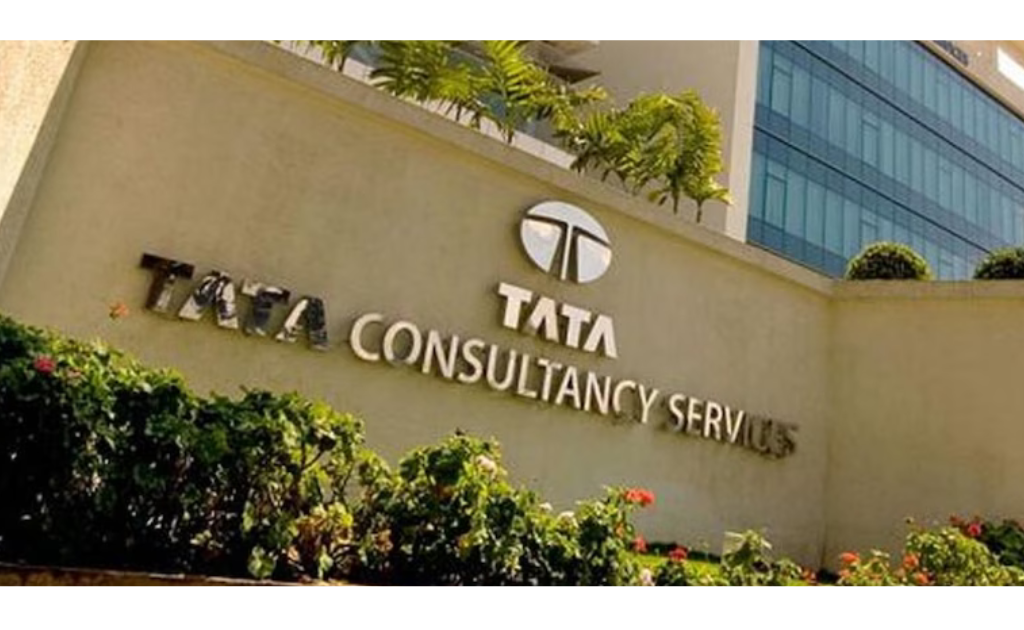
Corporate Social Responsibility (CSR): Making a Positive Impact
TCS recognizes the importance of corporate social responsibility and actively contributes to sustainable development and social causes. The company’s CSR initiatives focus on:
Sustainability Initiatives
TCS is dedicated to reducing its environmental impact and promoting sustainability. Through energy-efficient practices, waste reduction, and responsible resource management, TCS aims to minimize its carbon footprint and contribute to a greener planet.
Community Development and Education Programs
TCS is committed to empowering communities through education and skills development. Through various educational initiatives, vocational training programs, and scholarships, TCS helps bridge the digital divide and equips individuals with the necessary skills to thrive in the digital economy.
Environmental Conservation Efforts
TCS actively engages in environmental conservation activities, including tree plantation drives, biodiversity conservation, and water resource management. By promoting environmental stewardship, TCS contributes to preserving natural resources and fosters a sustainable future.
Diversity and Inclusion Initiatives
TCS believes in fostering a diverse and inclusive workplace that celebrates individual differences and promotes equal opportunities. Through initiatives promoting gender equality, inclusivity, and accessibility, TCS ensures a work environment that values diversity and enables all employees to reach their full potential.
Clientele and Case Studies: Testimonials of Success
TCS boasts an impressive roster of clients across industries, including Fortune 500 companies and leading global brands. By delivering innovative and transformative solutions, TCS has earned the trust and loyalty of its clients. Here are a few examples of successful collaborations:
- Client A: A leading global bank partnered with TCS to enhance its digital banking capabilities and improve customer experience. THE BANK ACHIEVED HIGHER CUSTOMER SATISFACTION AND INCREASED REVENUE through TCS’s expertise in AI-driven chatbots, mobile banking applications, and personalized marketing.
- Client B: A multinational retailer collaborated with TCS to streamline its supply chain operations and improve inventory management. Leveraging TCS’s expertise in data analytics and IoT, the retailer optimized its supply chain, reduced costs, and gained real-time visibility into its inventory, resulting in improved customer service and increased profitability.
- Client C: A healthcare provider partnered with TCS to implement an advanced electronic health records (EHR) system and enhance patient care. TCS’s healthcare solutions enabled seamless data integration, improved clinical workflows, and enhanced patient engagement, improving health outcomes and operational efficiency.
These success stories exemplify the value TCS brings to its clients through its comprehensive services and industry expertise.
Employee Development and Culture: Nurturing Talent
TCS recognizes that its employees are the driving force behind its success. The company invests in talent acquisition, retention, and development strategies to attract and nurture top professionals in the industry. TCS provides extensive training and skill development programs to enhance employees’ technical expertise and foster professional growth.
TCS also promotes diversity and inclusivity in the workplace, recognizing the importance of harnessing diverse perspectives and experiences to drive innovation and excellence. The company’s corporate values and culture revolve around integrity, respect, and a customer-centric approach, creating a collaborative and inspiring work environment.
Financial Performance: Driving Growth and Success
TCS’s financial performance reflects its market leadership and sustained growth. With a focus on delivering value to its clients and leveraging emerging technologies, TCS has consistently achieved strong revenue growth and financial highlights. Key performance indicators such as revenue growth, profitability, and customer satisfaction metrics demonstrate TCS’s ability to drive business outcomes and deliver exceptional results.
Future Outlook: Leading the Digital Revolution
Looking ahead, TCS is well-positioned to continue leading the digital revolution and shaping the future of the IT industry. The company’s strategy revolves around leveraging emerging technologies, deepening industry expertise, and expanding its global footprint. TCS is committed to addressing emerging trends and challenges in the IT industry, such as cybersecurity threats, data privacy regulations, and evolving customer expectations.
As the demand for digital solutions and technology consulting services grows, TCS aims to capitalize on new market opportunities and expand its presence in key geographies. By remaining at the forefront of technological innovation and delivering transformative solutions, TCS is poised to drive the success of its clients and shape the digital landscape of the future.
In conclusion, TATA Consultancy Services (TCS) is a global leader in the IT industry, delivering comprehensive IT services, digital transformation, and innovative solutions. With its extensive global presence, industry expertise, and commitment to research and innovation, TCS continues to empower businesses across sectors to thrive in the digital era. With a focus on client success, employee development, and corporate social responsibility, TCS exemplifies excellence and is a trusted partner for organizations worldwide.
By Business Korbo
Related post, strategic partnerships: how to choose and leverage them, crafting a competitive advantage: business strategy essentials, balancing short-term and long-term business strategies, leave a reply cancel reply.
Your email address will not be published. Required fields are marked *
Save my name, email, and website in this browser for the next time I comment.
Scaling Up: Strategies for Growing Your Business | businesskorbo

Tata Consultancy Services (TCS) Marketing Strategy 2024: A Case Study
Tata Consultancy Services (TCS) stands as a premier entity in the IT services and consulting sector, achieving a remarkable market capitalization exceeding $100 billion. This success has established TCS as a trusted technology partner, delivering significant value to its shareholders. The marketing strategy of TCS is deeply rooted in innovation and customer-centric solutions, making it a compelling case study for professionals and marketers alike. In this article, we delve into the TCS 2024 strategy, examining how the company leverages digital transformation to enhance brand value and customer engagement.
Through a comprehensive marketing mix that encompasses product selection, pricing strategies, distribution networks, and promotional activities, TCS maintains its position as a market leader. It fosters personalized communication and offers customized technology solutions to nurture long-term relationships with clients. Operating in multiple countries, TCS provides cutting-edge technology solutions across various sectors, showcasing its adaptability in a dynamic market.
This marketing case study will provide insights into TCS’s innovative approaches, focusing on enhancing customer experience via digital initiatives, as well as examining its successful global expansion strategy. Additionally, we will explore the integration of data-driven analytics in their marketing experience solutions, which enables TCS to adapt to the complexities of customer interactions, particularly in the financial sector.
Key Takeaways
- TCS achieved a market capitalization of over $100 billion.
- It focuses on personalized communication and customized technology solutions.
- TCS maintains a customer-centric marketing strategy , leading to consistent revenue growth.
- The company effectively utilizes a comprehensive marketing mix to maintain market leadership.
- TCS employs a competitive pricing policy to ensure affordability and value.
- Its digital presence, including social media, plays a significant role in reaching target audiences .
- TCS addresses global business challenges through innovation and excellence in service delivery.
Introduction to Tata Consultancy Services (TCS)
Tata Consultancy Services (TCS) stands as India’s largest IT consulting firm, delivering a broad range of services and solutions to enhance the digital landscape for diverse industries. Founded in 1968, TCS has developed a strong global presence and a reputation for innovation, aligning its offerings with the evolving needs of clients. The organization is heavily invested in digital transformation initiatives, consistently striving to improve operational efficiency and drive business growth across sectors such as finance, healthcare, and logistics.
With a workforce of approximately 614,795 employees worldwide, TCS leverages its expertise to implement advanced technology solutions tailored to client requirements. The firm achieved projected revenues of $16.54 billion and a profit estimation of $3.70 billion by the end of the financial year 2015-16, demonstrating its considerable impact on the global IT services market. TCS maintains a market capitalization of $80 billion, establishing itself among the top IT companies in India.
The strategic emphasis on digital transformation allows TCS to adapt swiftly to market changes and technological advancements. Through comprehensive digital services, the firm not only meets existing demands but also anticipates future trends, ensuring sustained leadership in the IT consulting sector.
| Year | Revenue (in billions) | Profit (in billions) | Market Capitalization (in billions) | Employees Worldwide |
|---|---|---|---|---|
| 2015-16 | $16.54 | $3.70 | $80 | 614,795 |
The Importance of Marketing Strategies in IT Services
In the rapidly evolving field of IT services, effective marketing strategies play a critical role in driving business growth and fostering customer engagement. Companies must focus not only on promoting their technological solutions but also on building strong relationships with clients. Understanding clients’ needs is essential for tailoring services and creating targeted marketing initiatives.
A well-defined value proposition significantly enhances trust and loyalty among customers. Businesses can achieve a 40-60% increase in sales by employing framework-driven prioritized prospect lists across multiple channels. Thus, identifying clear goals within marketing strategies can lead to higher customer satisfaction and reduced complaints, stemming from more relevant offers and services.
Many IT service providers have acknowledged the benefit of utilizing data analytics. This approach simplifies the creation of informed marketing strategies, by providing insights into customer behavior and preferences. For instance, TCS’s initiatives in Sales and Marketing Analytics have successfully captured customers’ digital footprints, allowing for customized campaigns that not only boost customer engagement but also reduce turnaround time.
Another crucial aspect of marketing strategies in IT services involves cost efficiency. Companies can achieve marketing costs that are 60-80% lower through the elimination of duplicate campaigns and redundant messaging, leading to improved conversion rates. By employing innovative approaches, IT service providers can position themselves effectively in a competitive landscape and promote sustained business growth.
The following table summarizes the impacts of strategic marketing in IT services:
| Strategy | Impact |
|---|---|
| Framework-driven Prospect Lists | 40-60% increase in sales |
| Elimination of Duplicate Campaigns | 60-80% lower marketing costs |
| Targeted Offers and Services | Higher customer satisfaction and lower complaints |
| Sales and Marketing Analytics | Reduced turnaround time and improved engagement |
Tata Consultancy Services (TCS) Marketing Strategy Overview
Tata Consultancy Services (TCS) has developed a comprehensive approach to its marketing strategy that plays a vital role in establishing its brand positioning and ensuring effective customer engagement. The TCS marketing strategy overview highlights the primary components that contribute to the company’s success in the competitive IT landscape. These elements encompass brand promotion, targeted digital initiatives, and a strong focus on customer interaction.
Key Components of TCS’s Marketing Strategy
The marketing strategy employed by TCS revolves around several key components designed to maximize brand visibility and customer loyalty. TCS focuses on:
- Leveraging digital marketing analytics tools to assess performance across customer lifecycle management.
- Utilizing innovative platforms and state-of-the-art design studios to enhance customer experiences.
- Implementing a customer-centric model that fosters collaboration through various marketing channels .
- Showcasing expertise in areas like IT governance, cybersecurity, and next-gen solutions through case studies.
- Strengthening emotional connections with audiences by introducing engaging taglines like “Building on Belief.”
Innovative Approaches Used by TCS
TCS has adopted several innovative approaches to enhance its marketing strategy and solidify its market position . Notable initiatives include:
- Targeted digital campaigns promoting key services and solutions tailored to specific market segments .
- Sponsorship of high-profile events, such as the TCS New York City Marathon, to bolster brand visibility.
- Integration of the ROI-by-Design™ model to ensure superior experiences across all customer interactions.
- Completion of over 1,500 projects for more than 300 customers through TCS Interactive, showcasing success stories.
Digital Marketing Initiatives of TCS
Tata Consultancy Services (TCS) has harnessed a variety of digital marketing initiatives to bolster its online presence and maximize user engagement. This includes a well-designed website that serves as the main hub for information and services, ensuring visitors find valuable resources quickly and easily. The website is complemented by a regularly updated blog where TCS shares insights and solutions tailored to its clients’ needs. This strategic approach not only enhances user experience but also establishes TCS as a thought leader in the IT services sector.
Online Presence and User Engagement
With a robust online presence, TCS has experienced remarkable growth in user engagement metrics. The company produces approximately 50 to 60 white papers annually, addressing key industry challenges and showcasing innovative solutions. In the past 18 months, TCS has successfully increased its LinkedIn followers from roughly 2.5 million to nearly 7 million. This significant uptick reflects how effectively TCS engages with its audience, fostering a sense of community and innovation among its stakeholders. The #TCSPartOfYourStory campaign further exemplifies TCS’s ability to intertwine storytelling with technology, enhancing the bond with its audience and driving brand loyalty.
Utilization of Social Media
Social media plays a crucial role in TCS’s digital marketing initiatives. Platforms such as LinkedIn, Twitter, Instagram, and Facebook serve as vital channels for outreach and engagement. TCS boasts over 478,000 followers on Twitter, 284,000 on Instagram, and 700,000 on Facebook, translating to a broad and diverse audience. The implementation of creative campaigns, such as the ‘America’s got talent’ format on the One TCS digital platform, showcases TCS’s commitment to fostering employee engagement and promoting a culture of innovation. By leveraging TCS social media in this way, the company effectively communicates its mission, shares success stories, and connects with clients and employees alike.
| Platform | Followers | Engagement Strategy |
|---|---|---|
| 7 million | Industry insights and thought leadership content | |
| 478,000 | Real-time updates and customer interaction | |
| 284,000 | Visual storytelling and behind-the-scenes content | |
| 700,000 | Community engagement and event promotion |
Brand Positioning and Messaging
Tata Consultancy Services (TCS) employs a deliberate brand positioning strategy aimed at establishing itself as a leader in the IT services industry. By emphasizing innovation and a customer-centric approach, TCS messaging communicates reliability and a commitment to tailored solutions that tackle various business challenges. This strategic positioning fosters a competitive advantage that appeals to organizations seeking trusted partners in their digital transformation journeys.
How TCS Positions Itself in the Market
TCS has cultivated its market position through comprehensive engagement in community initiatives and strong digital outreach. Sponsorship of the TCS New York City Marathon since 2014 highlights the company’s dedication to societal contributions. In collaboration with First Book, TCS has delivered 500,000 books to underprivileged children since 2008, emphasizing its commitment to education. Through campaigns like #TCSPartOfYourStory, the company showcases its involvement in India’s digital transformation across diverse sectors such as finance, healthcare, and logistics.
Elements of TCS’s Brand Messaging
TCS’s brand messaging revolves around several key elements that reinforce its competitive advantage. Client testimonials and case studies are pivotal in building trust and showcasing successful implementations. The rebranding initiative to “Building on Belief” resonates with millennials, aligning with their values and expectations. Additionally, TCS’s impressive digital presence, with over 7 million followers on LinkedIn and significant followings on platforms like Twitter and Instagram, underscores its ability to engage with a wide audience. Survey responses indicate that 40% of respondents value customer service, while 26.7% emphasize innovation and technology prowess as critical for brand perception. This focus on customer satisfaction and innovation solidifies TCS’s reputation as a forward-thinking industry leader.
| Key Statistics | Value |
|---|---|
| Years Sponsoring NYC Marathon | Since 2014 |
| Books Delivered to Underprivileged Children | 500,000 |
| LinkedIn Followers | 7 million+ |
| Instagram Followers | 284,000 |
| Twitter Followers | 478,000 |
| Facebook Followers | 700,000+ |
| Recognized Value Rank | 3rd in Global IT Services |
| Customer Service and Satisfaction Importance | 40% |
| Innovation and Technology Perception | 26.7% |
Global Expansion Strategies
Tata Consultancy Services (TCS) actively pursues a global expansion strategy that emphasizes geographical market penetration through a direct presence in key regions. This approach not only enhances accessibility for clients but also ensures that TCS remains competitive in the evolving IT services landscape.
Geographical Market Penetration
TCS’s commitment to geographical expansion has led to significant growth in emerging markets, which now contribute substantially to the global IT services market. As of recent analysis, these emerging markets represent 25.5% of the $730 billion sector, with an annual growth rate of 8%. This surpasses the 6% growth in developed markets, highlighting the critical need for TCS to engage actively in these regions.
The company’s operations in Latin America are particularly noteworthy. TCS’s presence spans across 12 countries, employing 5,500 local professionals and servicing more than 150 clients. This area accounts for approximately 4.7% of TCS’s revenues, showcasing successful market penetration strategies. TCS has also implemented global delivery centers in six Latin American countries to enhance its service offerings and operational efficiency.

Partnerships and Collaborations
Strategic partnerships and collaborations play an integral role in TCS’s global expansion plans. Engaging with technology leaders and academic institutions allows TCS to share best practices and access cutting-edge technologies. Such collaborations enhance TCS’s service offerings significantly, ensuring that the firm remains at the forefront of innovation.
This focus on strategic alliances strengthens TCS’s ability to navigate diverse markets effectively. By leveraging TCS collaborations, the company positions itself to capitalize on emerging opportunities and adapt to the unique demands of each geographical area. TCS’s notable presence in countries such as China, South Africa, the United Arab Emirates, and Eastern Europe further reinforces its commitment to global expansion.
| Region | Countries | Local Professionals | Client Base | Revenue Contribution (%) |
|---|---|---|---|---|
| Latin America | 12 | 5,500 | 150 | 4.7 |
| China | 1 | Data not specified | Data not specified | Data not specified |
| South Africa | 1 | Data not specified | Data not specified | Data not specified |
| United Arab Emirates | 1 | Data not specified | Data not specified | Data not specified |
| Eastern Europe | Data not specified | Data not specified | Data not specified | Data not specified |
Customer Experience and Engagement Tactics
Tata Consultancy Services (TCS) prioritizes customer experience in its marketing strategies by implementing effective engagement tactics. The company’s commitment to enhancing interactions leads to improved satisfaction and loyalty among clients. TCS utilizes advanced analytics to streamline targeting across multiple channels, contributing to a notable sales growth of 40-60%.
Engagement tactics employed by TCS include personalized communication and customized technology solutions. This approach significantly reduces marketing costs by 60-80% by eliminating redundant messaging and duplicate campaigns. Customer satisfaction benefits from TCS’s need-based product offerings, which minimize complaints and foster a deeper connection with clients.
TCS’s innovative solutions, such as the Next-best action framework and Campaign Optimizer, enhance marketing strategies by tailoring campaigns to individual preferences. The use of explainable AI techniques not only decodes complex decision-making processes but also enriches client relationships through continuous feedback integration.
Additionally, TCS addresses communication fatigue commonly experienced by enterprises, resulting in optimized campaign costs and enhanced customer satisfaction. The company’s Customer Experience Transformation Services encompass marketing automation , campaign management, and service design, ensuring a holistic approach to customer engagement.
| Engagement Tactics | Benefits |
|---|---|
| Personalized Communication | Improved customer satisfaction and loyalty |
| Customized Technology Solutions | Higher sales growth of 40-60% |
| Next-best action Framework | Increased employee engagement and productivity |
| Campaign Optimizer | Reduced marketing costs by 60-80% |
| Continuous Feedback Ingestion | Enhanced customer relationships and loyalty |
The TCS strategies employed in transforming the customer experience reflect a clear understanding of modern consumer expectations, heavily influenced by leaders like Amazon and Netflix. Overall, TCS’s dedication to tightening the connection between customer experience and marketing initiatives is central to sustaining growth and driving long-term success.
Innovation Strategy Driving Growth
Tata Consultancy Services (TCS) adopts a robust innovation strategy that is crucial for its growth and adaptation in the competitive IT services landscape. At the heart of TCS’s approach is a strong commitment to research and development (R&D), enabling them to stay ahead of technological advancements such as artificial intelligence, machine learning, and cloud computing. This focus not only allows TCS to enhance its offerings but also empowers clients to navigate and capitalize on the ongoing digital transformation in a rapidly evolving market.
Technological Advancements and Solutions
Through significant investments in R&D, TCS has established state-of-the-art innovation labs and collaborates with academic institutions and startups globally. This dedication facilitates the exploration of cutting-edge solutions that cater to businesses’ increasing demands for digital services, including IoT applications. TCS’s embrace of open innovation over the past 15 years fosters an ecosystem that thrives on external collaboration, ensuring that the company remains at the forefront of technological advancements.
Research and Development Focus
TCS’s structured approach to innovation incorporates a three-horizon strategy, addressing short-term, mid-term, and disruptive innovations. This methodology is complemented by the TCS Co-Innovation Network (COIN), which connects organizations with global businesses for advanced technological solutions. Key metrics, such as R&D focus, market analysis, and continuous improvement frameworks, underline TCS’s commitment to refining its innovation practices, ultimately securing a sustainable leadership position in the industry.
What is Tata Consultancy Services (TCS) known for?
How does tcs enhance customer experience, what role does digital marketing play in tcs’s strategy, what are the key components of tcs’s marketing strategy, how does tcs position itself in the it services market, what is tcs’s approach to global expansion, how does tcs focus on innovation within its strategy, what is the significance of market segmentation in tcs’s marketing strategy, related posts:.
- Strategic Marketing Approaches for Long-Term Success
- Netflix Marketing Strategy 2024: A Case Study
- Building a Strong Channel Marketing Strategy
- Maximizing Impact at Point of Purchase

Nina Sheridan is a seasoned author at Latterly.org, a blog renowned for its insightful exploration of the increasingly interconnected worlds of business, technology, and lifestyle. With a keen eye for the dynamic interplay between these sectors, Nina brings a wealth of knowledge and experience to her writing. Her expertise lies in dissecting complex topics and presenting them in an accessible, engaging manner that resonates with a diverse audience.
Wall’s Ice Cream Marketing Strategy 2024: A Case Study
Versace marketing strategy 2024: a case study.
You are using an outdated browser. Please upgrade your browser to improve your experience.
Partnership
Partner with Microsoft
Maximize your partnership
Strengthen your security
Compare offerings
Benefits Guide
Go to market
Marketing resources
Commercial marketplace
Sell with Microsoft
Cloud Solution Provider
New commerce experience
Partner incentives
Differentiate
Solutions Partner designations
Specializations
Azure Expert MSP
By opportunity
Device partners
Learning partners
Education partners
By solution area
Solution areas
Azure for partners
Business Applications for partners
Modern Work for partners
Security for partners
By initiative
Build for 2030
Inclusive economy
MCAPS Start for Partners
Partner of the Year Awards
Partner Communities
Microsoft Partner Community
Partner-led associations
Microsoft Partner blog
Find a partner
Partner Center
All Microsoft

TCS case study
Tcs accelerates customers transformation through analytics and ai solutions on microsoft azure, a company’s most powerful asset.
With obstacles including data silos and out-of-date solutions, many organizations fail to tap into the full power of their data.
A comprehensive portfolio of services
TCS created an ecosystem of strategy solutions to deliver sustained outcomes aligned to customers’ business goals.
Resolving challenges with the power of the cloud
TCS’ full complement of solutions on Azure cloud technology is helping customers accelerate their transformation journey.
Tata Consultancy Services (TCS) is an IT services, consulting, and business solutions organization that delivers real results to global businesses, ensuring an extraordinary level of certainty. The company offers a consulting-led, integrated portfolio of IT and IT-enabled infrastructure, engineering, and assurance services. This work is delivered through a unique Global Network Delivery Model™, spanning 46 locations worldwide, and recognized as a benchmark of excellence in software development.
With more than 500,000 associates, 24,000 of whom are Microsoft-certified, TCS helps enterprises harness cloud technologies to fuel business, innovation, and growth. In collaboration with Microsoft, it enables a next-generation data platform that provides organizations a modern, automated analytics pipeline, from data ingestion to business intelligence.
TCS’s investment in research and development and its domain expertise consistently earn recognition from independent analysts as a leader in Microsoft enterprise applications implementation services. TCS is positioned as a leader in both the 2021 Gartner Data & Analytics Magic Quadrant and Everest Group’s 2021 System Integrator Capabilities on the Microsoft Azure PEAK Matrix® Assessment.
Helping customers tap into the power of their data
TCS’s journey in analytics and AI is driven by a passion to empower customers to adopt a data-driven culture. Data is a company’s most powerful asset. It can enhance the customer experience, innovate ecosystems, minimize risk, and be monetized to deliver increased value.
Nevertheless, many organizations fail to tap into the full power of their data. From data silos to out-of-date solutions, from IT business misalignment to lack of data visibility, the challenges are numerous and diverse. Analyst reports indicate that while customers are looking to use AI and analytics to gain better insight on their data, the success rate is less than 30 percent.
“The advent of cloud computing and prospects for data on cloud are exciting horizons in the journey of data optimization by enterprises,” says Jai Mishra, Head, Azure Data Analytics & Insights, Microsoft Business Unit, with TCS. “Data on cloud demands a new comprehensive strategy based on machine-first principles that incorporate characteristics of AI and ML intelligence, agile development, and automation to harness the power of data for Business 4.0 enterprise opportunities.”
The TCS Azure Data Analytics & Insights suite of offerings includes cloud governance and cost optimization frameworks to ensure leverage of maximum business value from cloud adoption. The company offers multiple contextual solutions for industry and industry verticals around Azure cloud-native, cloud-ready, and cloud agnostic to meet varied business needs.
Examples of industry-centric data offerings include Retail StoreOps and Sales Foretell, an AI-led retail operations support system and sales prediction model; Customer Knowledge Platform for Retail, providing a real-time, 720-degree view of customer data; a data-based ESG solution for banking that integrates cognitive and AI/ML algorithms; iDataGov for Industry Data Governance powered by Azure Purview; and Insurance offerings using AI-based common data models and Microsoft Industry Data workbench. Others include Azure Auto Ops for automated Azure resource provisioning with governance and FinOps; Accelerated Appliance Migrations on Azure for migration of various data sources; Decision Operations Center Services, a suite of operations service-oriented offerings covering MLOps, DevOps, and DataOps; AI Workbench, with ready AI/ML models; and Intelligent Process Automation on Azure for industry-specific cognitive data extraction, operation visibility, and business process automation.
TCS’s dedicated Azure Data Analytics & Insights practice offers a comprehensive portfolio of services and solutions leveraging intellectual property and catering to every business (encompassing both CIO and non-CIO stakeholders) to deliver sustained business outcomes. The company works across industries to unlock the power of organizations’ data with its Data Intelligence Impact Cube framework, which enables growth transformation with cost efficiency. The TCS framework provides a systematic approach combining strategy, business, and technology to help organizations become data driven.
TCS has created an ecosystem of strategy solutions driven by Datom™; an ecosystem using Daezmo™ and its accelerators; and Cognitive Business Solutions powered by Decision Fabric™:
- TCS Datom™ is an advisory framework to develop the right data, analytics, and AI strategy aligned to the customer’s business goals.
- TCS Daezmo™ (Data and Analytics Estate Modernization) is a state-of-the-art solution suite combining approaches, methodologies, and machine-first accelerators to build a scalable and future-ready data platform. Daezmo is central to TCS’s core analytics and insights offerings, setting the foundation for AI implementation and helping democratize actionable insights across the enterprise.
- TCS Decision Fabric™ is a state-of-the-art, inclusive framework that brings together the power of AI and immersive analytics to build innovative business solutions that deliver value.
“We’re at an inflection point: we need machines to comprehend data to augment the needs of humans,” says Samik Ghosh, Global Head, Analytics & Insights Data Services with TCS. “Our Daezmo™ suite of solutions and accelerators, in combination with Microsoft Azure, can enable enterprises to aspire to exponential growth leveraging accelerated business outcomes, superlative customer experiences, and leading ecosystems, for differentiation on top of a modernized data estate.”
“We’re at an inflection point: we need machines to comprehend data to augment the needs of humans.”
—samik ghosh, global head, analytics & insights data services, tcs, accelerating business transformation with azure.
TCS’s longstanding relationship with Microsoft has benefitted many of the company’s enterprise customers. The TCS Microsoft Business Unit helps enterprises leverage the power of cloud, advanced analytics, AI, and machine learning to achieve their transformation goals. Through its Academy for Intelligent Data, the company has a dedicated focus on upskilling and certifying associates in Microsoft data and analytics technologies.
The TCS Daezmo™ suite of solutions helps customers speed up migration of legacy data estates to Azure and accelerate their digital transformation journeys. TCS allows customers across industries to resolve complex business-centric data challenges with the power of cloud. Its next-generation solution accelerators, including TCS Dezypher, further help customers achieve superior business outcomes.
Azure enables organizations of all sizes and across industry verticals to achieve their short- and long-term goals with a proven cloud infrastructure designed to help create and align business and technical strategies. With Azure AI services, organizations can build mission-critical solutions to analyze images, comprehend speech, uncover latent insights, and make predictions using data from across all their business.
The TCS Microsoft Business Unit and Microsoft offer industry-specific, cloud-based solutions that drive the growth and transformation journey across cloud-first and cloud-next horizons. TCS has all 18 Microsoft gold competencies and is a Microsoft Azure Expert Managed Services Provider (MSP), experienced in delivering managed services across the end-to-end Azure cloud lifecycle, at scale.
Helping global customers thrive
TCS helps customers across industries drive strategic vision and thrive amidst disruption. A pair of recent, game-changing collaborations tell the story.
A large bank in the Netherlands, with annual revenue of more than €9 billion, provides asset management, commercial, investment, and retail banking services, plus private banking for high-net-worth clients in 14 countries. In addition, it has commercial and merchant banking operations that play a major role in energy, commodities, and transportation markets.
Like many other companies, the bank’s data was in silos. Unifying it on a common platform appeared to be an insurmountable challenge. As it saw its data growing exponentially, the bank found that traditional methods of storing and analyzing the data were no longer sustainable or cost effective. It was increasingly difficult to spot inefficiencies or inaccurate decisions on sensitive matters. This proved especially problematic in respect of complex reporting and compliance requirements.
TCS built a data ingestion, DevOps, and testing framework to create and support a modern cloud data warehouse on Azure. The full-fledged solution utilizes Azure platform as a service (PaaS) offering, including Data Lake Store, SQL Database, Data Factory, Event Hub, DevOps, and many others. The result is a unified, secure, and cost-effective data platform, which hosts datasets of close to 1 TB (and growing) across the bank from more than 20 data sources.
The bank’s customers benefit by having full transparency on their data, with end-to-end tracking and complete history. Importantly for compliance, the solution uses Azure’s enterprise-grade security. The bank’s leadership now has greatly improved access to its data, with sophisticated AI and advanced analytics for better business decision-making. Overall, the bank now has greater reliability of its data due to improved data management and is realizing potential savings of €4M by moving to Azure Synapse Analytics, a limitless analytics service with unmatched time to insight.
“Together with TCS, we are helping customers accelerate digital adoption and drive data-driven culture across industries,” says Simran Sachar, Director of Analytics, AI & Industry, Global Partner Solutions. “Through our customer-centric focus we are delivering innovative analytics and AI solutions to help customers create superior business value and performance, faster. Data is the most strategic asset of every organization and with TCS, we are empowering organizations to adopt Azure Synapse and the Azure AI platform to bring together data integration, data warehousing, big data analytics, and AI.”
A global consumer goods company, headquartered in the United Kingdom, has more than 400 brands. It had 30-plus disparate platforms supporting day-to-day operations, with more than 100,000 IT users, 900 connected sites across 94 countries, and 22 petabytes of data. It used multiple data platforms and was hobbled by siloed data and retrospective-only business intelligence.
Like many other companies, it had multiple reporting environments built over the years. Often the sources of data for reports and analytics were hard to trace and, therefore, frequently the company didn’t trust its own data.
TCS and Microsoft partnered to carry out multiple proofs of concept to identify architectural standards and build an improved, unified data platform. The company chose Microsoft Azure to implement its data lakes and processing capabilities. TCS provided services including program management, data ingestion from 120+ sources, DevOps, and a digital factory and data labs.
The digital factory TCS built on Azure has capabilities which include data collection from IoT sensors, data aggregation, visualization, and advance analytics. This digital twin solution improved factory operations by providing real-time information that enabled line operators and factory leaders to make proactive data-driven decisions.
The company’s IT spend for licensing and infrastructure costs was significantly reduced by decommissioning existing legacy systems. The cloud data lake has enabled the customer to achieve data democratization and productization of machine learning models across the organization. The company is now better able to derive insights from a central single source of truth. The solution has enabled citizen scientists and empowered business IT while managing data governance and data quality centrally.
A framework for customer success
By identifying gaps in an organization’s existing data and analytics programs, TCS, in collaboration with Microsoft, can develop specific approaches to create a prescriptive plan to simplify operating models, set up data governance models, build technology architectures, and provide AI and analytics capabilities to drive business growth.
Going forward, TCS will grow its analytics and AI capabilities, and continue to offer a full complement of solutions around Microsoft cloud technologies, catering to all stakeholders in the enterprise and helping customers worldwide accelerate their growth and transformation journeys. To date, TCS Microsoft Business Unit has completed more than 1,000 successful Azure engagements for 225+ clients, including numerous Fortune 500 companies.
Microsoft Azure—innovation for endless possibilities
Discover all the benefits that Microsoft Azure can bring to your business.
TwinThread case study
Aiming to curb manufacturing downtime.
Partnering with Microsoft pays off
The Microsoft Partner Network is the most powerful community of its kind-larger than Amazon Web Services (AWS) and Salesforce combined.
- Harvard Business School →
- Faculty & Research →
- January 2021 (Revised February 2021)
- HBS Case Collection
TCS: From Physical Offices to Borderless Work
- Format: Print
- | Language: English
- | Pages: 20
About The Author
Prithwiraj Choudhury
Related work.
- Faculty Research
- October 2022 (Revised February 2023)
- TCS: From Physical Offices to Borderless Work By: Prithwiraj Choudhury and Malini Sen
- TCS: From Physical Offices to Borderless Work By: Prithwiraj Choudhury
Explained SWOT Analysis of TCS with Detailed Company Overview
By Aditya Shastri
Previously we analysed the SWOT Analysis of Accenture , one of the world’s major consulting firms. In this article, we will look at the SWOT Analysis of TCS.
Tata Consultancy Services (TCS) is a subsidiary of “Tata group” and one of India’s most renowned multinational conglomerates operating in 46 countries with 50 subsidiary businesses. TCS momentarily surpassed Reliance Industries and Accenture in market value on January 25, 2021, to become the world’s most valuable IT firm.
TCS’s marketing efforts have also aided the company’s current status as a powerhouse. Marketing is evolving as the world moves online, and if you want to learn about the newest – check out Free MasterClass on Digital Marketing Fundamentals taught by Karan Shah, the CEO and Founder of IIDE and gain insightful knowledge on Marketing.
Tata has risen to the top of the market as a result of its ability to endure competitive pressure, so before we begin with the SWOT Analysis of TCS, let’s learn about the company, its finances, services, and competitors.
TCS was formed on April 1, 1968, as a branch of Tata Sons to build demand for downstream computer services. Jamsetji Tata established it, and it is now one of India’s most esteemed firms. TCS now has 50 companies that offer information technology goods and services such as business process outsourcing, application development, consultancy capacity planning, enterprise software and more.
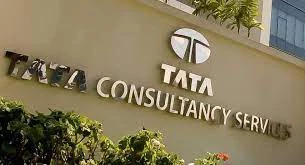
As the Indian financial system continued to expand in the twenty-first century, the need for technology to restrict extensive augmentation became part of the national blueprint. TCS, which had been investing more time in domestic IT from its inception, was ideally positioned to help the National Government at the federal and state levels in its innovative initiatives.
TCS created a digital distribution system on its own initiative as an expression of the company’s pioneering attitude and with the goal of spreading the advantages of the IT upgrade across the country. TCS’s ability to deliver high-quality overhauls and resolutions is unrivaled.
| Founder | J. R. D. Tata, F. C. Kohli |
|---|---|
| Year Founded | 1968 |
| Origin | Mumbai, India |
| No. of Employees | 614,795 |
| Company Type | Public |
| Market Cap | $152.34 Billion |
| Annual Revenue | $27 billion (2023) |
| Net Profit | $5.219 billion (2023) |
Products and Services of TCS
Following are the products and services TCS sells –
- IT services and consulting,
- Outsourcing and BPO
- Software Products
- Business solutions
- TCS MasterCraft
- Intelligent Testing System
- Test Automation Manager
Before we move to the SWOT Analysis of TCS let us get some insights about the company.
What’s new with TCS
Check out some current news about TCS:
- T CS was chosen as JLR’s transformation partner to provide ready-for-the-future digital services for their customers.
- Students’ One Step Gamified Learning Platform wins the Grand Prize at the TCS Sustainathon Singapore 2023.
- As the first major shift under the new CEO, TCS returns to a vertical-based operational structure.
Buyer Persona
Below is a buyer persona that will help understand the target audience:

Buyer’s Persona
Profession:
Chief Digital Officer
- Modernized banking services to meet evolving customer demands.
- Operational efficiency and reduced cost.
Interest & Hobbies
- Reading financial and tech magazines
- Exploring the latest technology trends
- Surfing Quora
Pain Points
- Increasing competition in fintech.
- Balancing innovation with security.
Social Media Presence
Now that we’ve established the firm’s core business, let’s delve into the SWOT Analysis of TCS.
SWOT Analysis of TCS
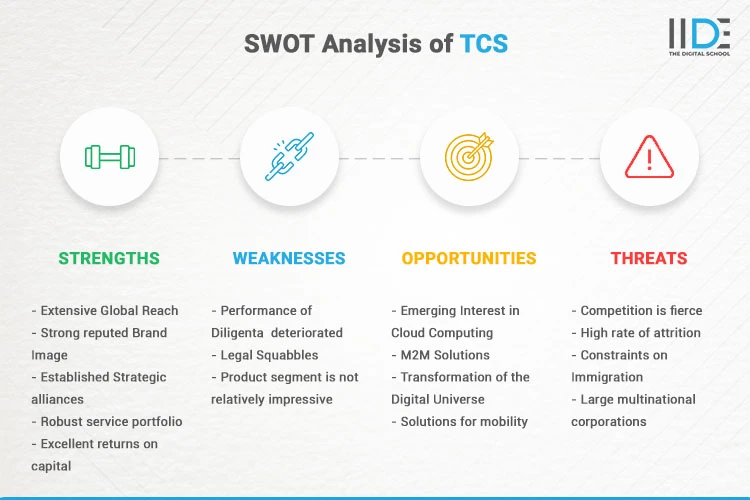
SWOT analysis is a structured approach to evaluate a company’s strategic position by analysing its strengths, weaknesses, opportunities, and threats. It is a simple technique to analyse the outcomes of a marketing evaluation. The SWOT analysis of TCS are as follows:
1. Strengths of TCS
Strengths are an organization’s distinct skills that offer it a competitive edge in gaining greater market share, attracting more customers, and maximizing profitability. TCS’s strengths are listed below:
- Extensive Global Reach – TCS’s global reach, which currently extends from North America, the United Kingdom, Africa, Europe, and the Asia-Pacific regions, reflects the company’s efforts to obtain as much coverage as possible in diverse areas. TCS has a strong worldwide image thanks to its presence in a variety of geographical locations.
- Major number of Customers from various sectors – TCS supports customers in a wide range of industries, including banking, finance, retail, telecommunications, and media & entertainment. Exposure to different enterprises mitigates the hazards of over-dependence on a particular market or industry.
- Strong reputed Brand Image in the market – TCS has unquestionably created its own brand, image, and reputation; it keeps its consumers satisfied and acts as a sign of excellence.
- Well-established strategic alliances – TCS has formed significant alliances with multinational companies all around the world. It collaborated with technology powerhouses such as Amazon, Adobe, Dell, Bosch, and HP, among others. Through these partnerships, TCS provides both technologically viable and creative commercial and tactical solutions.
- Robust Service Portfolio – TCS has a diverse service offering that includes application development and maintenance of Business Process Services (BPS), IT infrastructures, business intelligence, and more. A robust and diversified portfolio is drawn to various corporate clients.
- Empowered and encouraged employees – Through effective training and learning initiatives, a highly competent workforce has been created. TCS invests heavily in employee training and development, resulting in a staff that is not just highly competent but also driven to achieve greater success.
- Excellent returns on capital invested – TCS has an excellent track record of executing new projects and generating good returns on capital expenditure by establishing new income streams.
2. Weaknesses of TCS
Weaknesses are elements of a company or brand that need to be improved. The following are significant flaws from the SWOT Analysis of TCS:
- Performance of Diligenta deteriorated – Diligenta, a TCS subsidiary, has consistently performed poorly. TCS’s bottom line is unlikely to improve rapidly as a result of the enterprise’s poor performance and hence has a negative effect.
- Legal Squabbles – TCS filed a lawsuit against Epic System in 2014 for suspected abuse of private information. TCS was found guilty in 2016 and was charged $940 million in damages. TCS objected to and rejected the higher competence’s decision. Such incidents have a negative impact on the company’s image.
- The product segment is not relatively impressive – While TCS does well by delivering the greatest services, its products aren’t what one would anticipate from a company of its kind. They do require some effort.
3. Opportunities for TCS
Opportunities are possible areas of emphasis for a firm to focus on in order to enhance outcomes, boost sales, and, eventually, profit.
- Emerging Interest in Cloud Computing – Digital technologies and high-speed internet access have evolved. In fact, spending on cloud services will rise at a CAGR of 19% over the next five years. Society is shifting towards cloud-based solutions. TCS has a robust cloud-based infrastructure and is thus prepared to capitalise on the created demand.
- M2M Solutions – Wireless and cable communications systems are both enabled by Machine to Machine (M2M) solutions. There are bright possibilities for M2M solutions in the future, and revenues are projected to be substantial. TCS offers a comprehensive variety of M2M services, allowing the need for M2M solutions to be met.
- Transformation of the Digital Universe – Because the world is becoming more digital, business forces are altering the digital economy. TCS’s primary goal is to digitally transform and deliver digital solutions. TCS could expect more expenditure on technology for digital transformation.
- Solutions for mobility – With a rising mobile worker population and the increased usage of sophisticated mobile devices, enterprise mobility solutions are expected to be driven by business applications. The demand for mobility solutions is latent and is expected to grow at a CAGR of 24.7 per cent through 2022. TCS is well-positioned to profit from its increased emphasis on the development of enterprise mobility solutions.

4. Threats to TCS
Threats are environmental elements that might have a negative impact on a company’s success. TCS’s threats include the following:
- Competition is fierce – IT firms such as Infosys, Wipro, Capgemini, Deloitte, Accenture, and others confront fierce rivalry. As a result, the industry is experiencing price wars and has a restricted market share.
- A high rate of attrition – The Indian IT sector has a high rate of turnover, which raises the expense of providing new workers with skills and leadership development and has a negative impact on the company’s reputation.
- The Constraints on Immigration – With immigration regulations, increasing H-1B visa fees, and changing political situations in the US, Indian IT firms are anticipated to suffer as they increase their costs and damage profitability, posing a risk to the sector.
- Large multinational corporations – Large multinational corporations are expanding into India and competing for a worldwide clientele.
Top Five Competitors of TCS
- Accenture: Global consulting company Accenture provides a number of services, including assisting companies with their technology and strategy requirements. It’s a formidable competitor to TCS since it excels at adjusting to shifting business conditions and has an abundance of experience across numerous global businesses.
- Cognizant: Global business Cognizant assists companies with their IT requirements, particularly those related to modernization and emerging digital. They compete with TCS by being inventive, adaptable, and customer-centered.
- Computer Horizons Corp. U.S.-based provider of IT services, Computer Horizons Corp. , provides consulting and software development services. Despite being smaller than TCS, it differentiates itself by providing specialized solutions and knowledge, particularly in the regional markets where TCS is active.
- Wipro: An international IT firm based in India, Wipro offers IT solutions and consulting services to a range of sectors. By putting an emphasis on innovation, sustainability, and knowledge of cutting-edge technology while servicing clients worldwide, it competes with TCS.
- Infosys : The Indian-based, international IT firm Infosys provides the development of software, consultation, and outsourcing solutions. It competes with TCS by focusing on modern technology for clients throughout the world and being inventive and global.
This brings us to the end of the case study on the SWOT Analysis of TCS. Let us sum up our understanding in the next section.
TCS is unquestionably the best in its industry. It has numerous and noteworthy strengths. For a company like TCS with such a great brand image, brand backing, market command, portfolio, reach, and so on, it needs just a little more work to address its weaknesses and be more alert to threats. If TCS pays more attention to its strengths and expands as well as adjusts even further for new opportunities, TCS will be able to keep its crown.
We also discovered in this SWOT Analysis of TCS that the firm is significantly reliant on its customers and has great brand recognition and trust. Considering the rising competition in a competitive field like IT, firms have to compete for their customers through improved marketing efforts.
Qualifying for the required Digital Marketing abilities and completing Certified Courses may lead to job chances with major tech organizations such as Accenture. IIDE provides short-term certification that may get you up to speed in a variety of digital skills and experience in areas like social media marketing, media planning, and SEO in as little as five days.
If you enjoyed this in-depth company analysis, visit our IIDE Knowledge area for more case studies like this. Thank you for spending the time to read this SWOT Analysis of TCS. Please share your thoughts on the case study in the comments section below.
Author's Note: My name is Aditya Shastri and I have written this case study with the help of my students from IIDE's online digital marketing courses in India . Practical assignments, case studies & simulations helped the students from this course present this analysis. Building on this practical approach, we are now introducing a new dimension for our online digital marketing course learners - the Campus Immersion Experience. If you found this case study helpful, please feel free to leave a comment below.
IIDE Course Recommendation

" * " indicates required fields
Get Syllabus
By providing your contact details, you agree to our Terms of Use & Privacy Policy
Aditya Shastri
Lead Trainer & Head of Learning & Development at IIDE
Leads the Learning & Development segment at IIDE. He is a Content Marketing Expert and has trained 6000+ students and working professionals on various topics of Digital Marketing. He has been a guest speaker at prominent colleges in India including IIMs...... [Read full bio]
AirAsia’s marketing strategy focuses on affordability, digital channels, strong branding, targeted ads, and strategic partnerships to effectively reach budget-conscious travelers. Overall, it was very beneficial to me.
Discover TCS’s SWOT Analysis. Insightful and helpful content for me
Amul is a very strong dairy brand in India! Their SWOT analysis shows that they have great strengths, like a strong brand and a wide range of products. However, they also have weaknesses, such as relying mostly on dairy. There are many opportunities for them to grow, like expanding into new products and markets. But they need to watch out for competition and changes in prices. Overall, Amul has a lot of potential to continue being successful! For a deeper look, you can read more about it.
Submit a Comment Cancel reply
Your email address will not be published. Required fields are marked *
Submit Comment
This site uses Akismet to reduce spam. Learn how your comment data is processed .
Related Posts

Elaborative Business Model Of LinkedIn – Detail Explanation
by Aditya Shastri | Aug 16, 2024
Quick Read The business model of LinkedIn leverages a robust freemium structure, offering...

Extensive Marketing Strategy Of Manappuram Finance – In-Depth Analysis
Quick Read The marketing strategy of Manappuram Finance Limited focuses on leveraging...
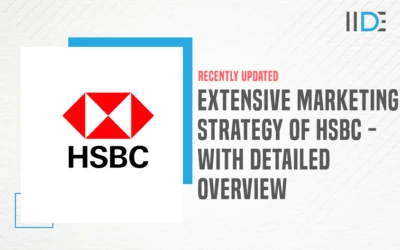
Unveiling HSBC’s Robust Marketing Strategy – Detailed Insights
Quick Read The marketing strategy of HSBC focuses on leveraging digital transformation,...
I’m Interested in This Masterclass
Corporate Social Responsibility - A Case Study on TCS
9 Pages Posted: 29 Jun 2020
Aakash Aade
Dr. Ambedkar Institute of Management Studies and Research
Hanisha Chhabra
Date Written: June 29, 2020
Corporate Companies have now become a socially active conduct their CSR activity. Historically companies only aimed at earning profit but due to the increased awareness about social responsibility, CSR (Corporate Social Responsibility) came into power. This paper will identify CSR Activities, there ways of conduct By Tata Group of Companies emerging how it effect on the overall working of the company, their share price, and profit making ,and how Tata Consultancy Services(TCS) are able to manage their CSR model in an efficient manner. The researcher takes effort to find out the details of CSR model of Tata Consultancy Services(TCS) and activities under taking by them for the benefit of society and hence for the development of society. Tata Consultancy Services(TCS) is the subsidiary of the TATA Group this is one of the most Renowned group of company, due which studying their CSR model is a very fascinating topic of research. The paper will be based on qualitative research.
Keywords: Corporate Social Responsibility, Tata Consultancy Services (TCS), Events, Stakeholders
Suggested Citation: Suggested Citation
Aakash Aade (Contact Author)
Dr. ambedkar institute of management studies and research ( email ), hanisha a chhabra, do you have a job opening that you would like to promote on ssrn, paper statistics, related ejournals, finance education ejournal.
Subscribe to this fee journal for more curated articles on this topic
Corporate Governance & Finance eJournal
Corporate governance: social responsibility & social impact ejournal, corporate social responsibility (csr) ejournal, organizations & markets: policies & processes ejournal, sustainability at work ejournal.
More From Forbes
International market entry strategies for businesses.
- Share to Facebook
- Share to Twitter
- Share to Linkedin
Salvador Ordorica is the CEO of The Spanish Group LLC , a first-class international translation service that translates over 90 languages.
In today's interconnected world, businesses are constantly seeking ways to broaden their horizons and enter new markets. Business leaders cannot deny the allure of international expansion, but they often encounter challenges and uncertainties on the path to success.
I’ve been running an international translation company that started operating in Irvine, California, and now we’ve entered into over 18 foreign countries. So, I will share what I’ve learned over the years, exploring the essential components of international market entry strategies, the pivotal role of cultural intelligence and some real-world case studies of companies that have triumphed on the international stage.
Market Entry Strategies
Before embarking on the journey of international expansion, businesses must first carefully assess their motivations and goals. Market entry is not a one-size-fits-all endeavor; rather, it demands a customized approach based on factors such as the industry, target market and available resources.
Are you looking to tap into new customer bases, reduce dependence on a single market or take advantage of cost-efficiency in other countries? Each objective requires a tailored market entry strategy.
1. Exporting
Exporting is a market entry strategy where a business sells its products or services to foreign customers. It typically involves shipping goods or delivering services across international borders, often through intermediaries or distributors. Exporting is a relatively low-risk option for entering international markets, as it allows companies to leverage their existing products or services without making significant investments in foreign operations.
2. Licensing And Franchising
Licensing allows businesses to grant foreign entities the right to use their intellectual property, such as trademarks or patents. Franchising involves replicating a successful business model in foreign markets. These options offer a quicker market entry but require careful management .
3. Joint Ventures And Partnerships
This strategy allows businesses to share the risks and costs associated with expanding into foreign markets. It's a mutually beneficial arrangement where both parties work together to achieve common goals while maintaining a degree of independence. However, successful execution requires careful negotiation, clear agreements and effective cooperation to navigate cultural differences and ensure the venture's success.
4. Acquisitions And Mergers
Market entry via acquisition or merger with foreign businesses offers speed and access to established customer bases and distribution networks. But it brings integration, cultural and stakeholder challenges. It's high-risk, high-reward, demanding thorough due diligence and post-acquisition management for international success.
5. Wholly-Owned Subsidiaries
This represents a market entry strategy where a company establishes complete ownership and control of its operations in a foreign market. In this approach, the business sets up a new entity or company in a foreign country, fully owned by the parent company. While this gives the parent company maximum autonomy and decision-making power, it also entails significant financial investment and higher risks. Wholly-owned subsidiaries are ideal when a business seeks tight control over operations, brand consistency and long-term market presence in the foreign market.
The Role Of Cultural Intelligence
In working with international markets, I've learned that one of the key challenges is navigating the cultural diversity of global markets.
Cultural intelligence , often referred to as cultural quotient (CQ), is the ability to understand and to be able to adapt to different cultural contexts effectively. In international business, cultural intelligence plays a pivotal role in the failure or success of market entry strategies.
• Understanding The Local Market
Cultural intelligence helps businesses understand the values, customs and preferences of the local population. Adapt services to resonate with locals to gain local market understanding, enhancing your success in market entry.
• Building Trust And Relationships
Establishing trust with local partners and customers is paramount. Hire local people to understand the culture of each place. This makes you prioritize cultural intelligence, respecting customs and etiquette, exemplified in successful partnerships worldwide.
• Effective Communication
Language barriers can be a significant hurdle in international business. Cultural intelligence involves effective communication strategies that transcend linguistic differences. To achieve this, prioritize cross-cultural training for your team, hire local experts and foster a culturally sensitive work environment.
• Adaptation And Innovation
Successful market entry often requires adapting products or services to meet local needs and preferences. Cultural intelligence implies innovation and adaptation in response to cultural insights.
To achieve a successful market entry through cultural intelligence as a company, I have focused on adapting services to local customs, languages and trends. Simultaneously, we encourage innovation in translation technology to maintain a competitive advantage across diverse markets.
Case Studies: Companies That Successfully Entered The International Market
Now, let's dive into some case studies, drawing inspiration from companies that have successfully entered international markets.
I think Apple's gradual but well-calculated entry into various international markets exemplifies "market entry success factors." Their localized approach to product launches and marketing is a masterclass in tailoring strategies to diverse audiences.
2. McDonald’s
We can see that McDonald's excels with franchising as a market entry strategy. Their ability to adapt their menu to local tastes while maintaining a consistent brand image is impressive.
3. Coca-Cola
Coca-Cola's global success underscores the significance of adapting to diverse drinking cultures. In the 1970s , the "I'd Like to Buy the World a Coke" campaign and the unforgettable jingle propelled international expansion. Coca-Cola maintained a consistent product while allowing room for cultural taste adjustments. Meticulous adaptation in advertising, promotions, distribution and pricing cemented its global triumph.
Today, international market entry is not just an option; it's a necessity for businesses seeking growth and sustainability. Expanding into international markets is a transformative experience that can propel a company to new heights. By leveraging the right strategies and a global mindset, businesses can unlock the door to global success and write their success stories in the international market.
Forbes Business Council is the foremost growth and networking organization for business owners and leaders. Do I qualify?

- Editorial Standards
- Reprints & Permissions
We've detected unusual activity from your computer network
To continue, please click the box below to let us know you're not a robot.
Why did this happen?
Please make sure your browser supports JavaScript and cookies and that you are not blocking them from loading. For more information you can review our Terms of Service and Cookie Policy .
For inquiries related to this message please contact our support team and provide the reference ID below.
Whisker’s winning formula: Enhancing pet care with PayPal Pay Later
PayPal Editorial Staff
August 8, 2024
Making Whisker products more accessible offers the opportunity to build loyalty among a wider base of pet parents who can then make repeat purchases.
As a leading innovator in the pet tech market, Whisker is shaping the future of pet care to improve the lives of pets and pet parents.
Their products provide smart solutions that automate chores in pet households and provide intelligent insights into the health of family pets.
Whisker's longstanding relationship with PayPal had already been instrumental in their success. When the opportunity came to expand payment options, PayPal Pay Later was a natural choice.
We spoke with Whisker’s President and CEO, Jacob Zuppke, about the importance of making their products accessible for even more pets and their humans.
SUCCESS METRICS
- 25% of Whisker customers use flexible options like PayPal Pay Later. 1
- 98% increase in AOV with PayPal Pay Monthly. 2
- 58% increase in AOV with PayPal Pay in 4. 2
With PayPal's support, Whisker continues to innovate and fulfill its mission to shape the future of pet care and wellness insights. It’s a win for pets and pet parents.
Watch the video and download the case study to learn more.
Whisker’s Winning Formula Case Study (PDF)
Was this content helpful?
Related content
Sign up for the paypal bootcamp..
In partnership with three expert business owners, the PayPal Bootcamp includes practical checklists and a short video loaded with tips to help take your business to the next level.
*Required fields.
I consent to PayPal contacting me by phone or by email, and to sending me product or industry information relevant to my query. I know I can unsubscribe at any time.
We use cookies to improve your experience on our site. May we use marketing cookies to show you personalized ads? Manage all cookies
Tourmaline Oil to acquire Crew Energy for $947 million
- Medium Text

- Crew Energy Inc Follow
- Tourmaline Oil Corp (Alberta) Follow
Sign up here.
Reporting by Tanay Dhumal in Bengaluru; Editing by Vijay Kishore
Our Standards: The Thomson Reuters Trust Principles. , opens new tab

Universal seeks UK incentives for Bedford theme park, FT reports
Comcast's theme parks business Universal is in talks with British officials about tax and other infrastructure incentives to secure a multi-billion-pound resort in Bedford, the Financial Times reported on Sunday.

- SUGGESTED TOPICS
- The Magazine
- Newsletters
- Managing Yourself
- Managing Teams
- Work-life Balance
- The Big Idea
- Data & Visuals
- Reading Lists
- Case Selections
- HBR Learning
- Topic Feeds
- Account Settings
- Email Preferences
Embracing Gen AI at Work
- H. James Wilson
- Paul R. Daugherty

The skills you need to succeed in the era of large language models
Today artificial intelligence can be harnessed by nearly anyone, using commands in everyday language instead of code. Soon it will transform more than 40% of all work activity, according to the authors’ research. In this new era of collaboration between humans and machines, the ability to leverage AI effectively will be critical to your professional success.
This article describes the three kinds of “fusion skills” you need to get the best results from gen AI. Intelligent interrogation involves instructing large language models to perform in ways that generate better outcomes—by, say, breaking processes down into steps or visualizing multiple potential paths to a solution. Judgment integration is about incorporating expert and ethical human discernment to make AI’s output more trustworthy, reliable, and accurate. It entails augmenting a model’s training sources with authoritative knowledge bases when necessary, keeping biases out of prompts, ensuring the privacy of any data used by the models, and scrutinizing suspect output. With reciprocal apprenticing, you tailor gen AI to your company’s specific business context by including rich organizational data and know-how into the commands you give it. As you become better at doing that, you yourself learn how to train the AI to tackle more-sophisticated challenges.
The AI revolution is already here. Learning these three skills will prepare you to thrive in it.
Generative artificial intelligence is expected to radically transform all kinds of jobs over the next few years. No longer the exclusive purview of technologists, AI can now be put to work by nearly anyone, using commands in everyday language instead of code. According to our research, most business functions and more than 40% of all U.S. work activity can be augmented, automated, or reinvented with gen AI. The changes are expected to have the largest impact on the legal, banking, insurance, and capital-market sectors—followed by retail, travel, health, and energy.
- H. James Wilson is the global managing director of technology research and thought leadership at Accenture Research. He is the coauthor, with Paul R. Daugherty, of Human + Machine: Reimagining Work in the Age of AI, New and Expanded Edition (HBR Press, 2024). hjameswilson
- Paul R. Daugherty is Accenture’s chief technology and innovation officer. He is the coauthor, with H. James Wilson, of Human + Machine: Reimagining Work in the Age of AI, New and Expanded Edition (HBR Press, 2024). pauldaugh
Partner Center
Advertisement
Supported by
How Did Mpox Become a Global Emergency? What’s Next?
The virus is evolving, and the newest version spreads more often through heterosexual populations. Sweden reported the first case outside Africa.
- Share full article

By Apoorva Mandavilli
Apoorva Mandavilli covered the 2022 mpox outbreak and the Covid-19 pandemic.
Faced once again with a rapidly spreading epidemic of mpox, the World Health Organization on Wednesday declared a global health emergency. The last time the W.H.O. made that call was in 2022, when the disease was still called monkeypox.
Ultimately the outbreak affected nearly 100,000 people worldwide, primarily gay and bisexual men, including more than 32,000 in the United States.
The W.H.O.’s decision this time was prompted by an escalating crisis of mpox concentrated in the Democratic Republic of Congo. It recently spread to a dozen other African countries. If it is not contained, the virus again may rampage all over the world, experts warned.
On Thursday, Sweden reported the first case of a deadlier form of mpox outside Africa , in a person who had traveled to the continent. “Occasional imported cases like the current one may continue to occur,” the country’s public health agency warned.
“There’s a need for concerted effort by all stakeholders, not only in Africa, but everywhere else,” Dr. Dimie Ogoina, a Nigerian scientist and chair of the W.H.O.’s mpox emergency committee, said on Wednesday.
Congo alone has reported 15,600 mpox cases and 537 deaths, most of them among children under 15, indicating that the nature of the disease and its mode of spread may have changed.
We are having trouble retrieving the article content.
Please enable JavaScript in your browser settings.
Thank you for your patience while we verify access. If you are in Reader mode please exit and log into your Times account, or subscribe for all of The Times.
Thank you for your patience while we verify access.
Already a subscriber? Log in .
Want all of The Times? Subscribe .

IMAGES
COMMENTS
Read about TCS customers, success stories, and client testimonials on how TCS is helping meet the ever-evolving needs of growth and sustainability at scale. ... Discover our press releases, reports, and company announcements. Discover more. Press releases Recent Press releases. 12 Aug ... Case Studies | 13 Mar 2024. 327 results. Customer ...
This is an overall company analysis of TCS (Tata Consultancy Services), a global leader in IT services and business solutions. The report includes the SWOT & PESTEL analysis along with the ...
TCS operates on a service-based business model that allows it to offer tailored solutions to meet each client's specific needs. This approach has contributed to TCS's success in building long-term relationships with its customers. Read Also Wipro Case Study and Marketing Strategy. TCS offers a range of IT services, which are discussed in ...
Background. Tata Consultancy Services (TCS), a multinational organization in IT Services, Consulting and Business Solutions, with over 469,000 of the world's best-trained consultants in 46 countries, has established itself as a pioneer in Software Research and Innovation. TCS' investment in Research and Innovation is significant and runs ...
History, Vision, and Mission of TCS. TATA Consultancy Services (TCS) was founded in 1968 and is a subsidiary of the Tata Group, one of India's largest and most respected conglomerates. From its humble beginnings, TCS has grown into a global powerhouse, leveraging its information technology expertise to serve clients worldwide.
The marketing strategy of TCS is deeply rooted in innovation and customer-centric solutions, making it a compelling case study for professionals and marketers alike. In this article, we delve into the TCS 2024 strategy, examining how the company leverages digital transformation to enhance brand value and customer engagement.
The case study attempts to highlight the myriad environment-friendly steps initiated by TCS and their overall impact on the company's operations directly or indirectly.The case study could provide ...
Tata Consultancy Services (TCS) is an Indian multinational corporation specializing in information technology services and consulting.Headquartered in Mumbai, it is a part of the Tata Group and operates in 150 locations across 46 countries. [7] TCS is the second-largest Indian company by market capitalization.. As of 2024, TCS is ranked seventh on the Fortune India 500 list. [8]
Perspectives is a TCS management journal that provides expert opinion & case studies to solve business challenges. Also find interviews of leading authorities on business & economics. Read more.
The TCS framework provides a systematic approach combining strategy, business, and technology to help organizations become data driven. TCS has created an ecosystem of strategy solutions driven by Datom™; an ecosystem using Daezmo™ and its accelerators; and Cognitive Business Solutions powered by Decision Fabric™: TCS Datom™ is an ...
Abstract. Tata Consultancy Services (TCS), a multinational IT services company headquartered in Mumbai, is a subsidiary of one of India's most reputed conglomerates, the Tata Group. In 2020, TCS was valued at $144.7 billion, the highest for any company in the IT sector, globally. In the immediate aftermath of the COVID-19 crisis, like many ...
SWOT analysis is a structured approach to evaluate a company's strategic position by analysing its strengths, weaknesses, opportunities, and threats. It is a simple technique to analyse the outcomes of a marketing evaluation. The SWOT analysis of TCS are as follows: 1. Strengths of TCS.
The present case study highlights the segment reporting of Tata Consultancy Services (TCS). How the critical analysis of segment reporting is carried out and how it is useful for the external users? This study develops an empirical proxy for the quality of segment reporting from the data in company's annual reports.
Abstract. Corporate Companies have now become a socially active conduct their CSR activity. Historically companies only aimed at earning profit but due to the increased awareness about social responsibility, CSR (Corporate Social Responsibility) came into power. This paper will identify CSR Activities, there ways of conduct By Tata Group of ...
The content from cameras is sent to and retrieved from operational and DR storage at three Tata Communications data centres in India. Access takes minutes rather than days and there are huge environmental benefits too. Read The Full Case Study Here. "Tata Communications was the company capable of engineering a complete end-to-end digital ...
TCS' platform-based sourcing helped Tata Sons to harness group synergy. With an aim to harmonize sourcing process across the group companies, Tata Sons selected TCS platform-based sourcing services, leveraging unique collaboration model. Read this case study to know more. VersaCold leveraged TAP™ to digitize end-to-end purchasing process ...
Tata Consultancy Services (TCS) Case Studies. Browse Tata Consultancy Services (TCS) case studies and success stories to help make the right purchasing decision. 1-15 of 94 results. View... 15; Choose Industry ... Steve Whitby UK & Ireland Director of Business Systems. Read Case Study. 1; 2; 3;
The company partnered with TCS to digitalize and unify their HR processes across multiple locations on the cloud with TCS' HCM platform. The solution comprising workforce administration, payroll, time, performance, and compensation management, empowered TMILL employees, managers and HR with greater self-service and automation tools.
Ratios of Solvency: Assessing the Long-Term Financial Stability of TCS: A company's long-term financial health and capacity to pay off long-term debt are further examined by solvency ... A Case Study of Tata Consultancy Services (TCS) Ratio analysis is a fundamental tool for assessing the financial health of a business, and its applications go ...
4 Case Studies Of Businesses That Scaled To Greatness. Joe Camberato. ... Plank wanted to increase the company's growth, so in 1999, he decided to take out an ESPN ad for $25,000. It was a risky ...
In international business, cultural intelligence plays a pivotal role in the failure or success of market entry strategies. ... Case Studies: Companies That Successfully Entered The International ...
Beauty brand Avon Products Inc. should slow down its bankruptcy case so that people who allegedly got cancer from the company's products have time to study any potential payout plan, a lawyer ...
At TCS, talent management and employee well-being go hand-in-hand. Focusing on wellness in the workplace improves employee health and happiness and makes for more vibrant, energetic, engaged, and creatively attuned employees. Well-being at TCS focuses not only on employees being productive within the organization, but also on their contribution ...
Independent business, tax, financial, and legal advice should be obtained before making any business decision. 1 Data source from Whisker, June 2024. 2 Data source from PayPal internal analysis of US sales for Whisker, May 2023-May 2024 comparing purchases using other payment methods through PayPal
Canada's Tourmaline Oil said on Monday it will acquire Crew Energy in a C$1.3 billion ($947.52 million) all-stock deal, which includes debt, to boost its presence in the Montney shale play in Alberta.
Summary. Today artificial intelligence can be harnessed by nearly anyone, using commands in everyday language instead of code. Soon it will transform more than 40% of all work activity, according ...
1. Senior leaders recognize that con nued growth and profitability will likely come from new collaborators (even competitors), new digital offerings, and new industries and ecosystems. 2. Senior leaders predict innovation and a customer & employee centricity need to drive their culture more than shareholder value.
On Thursday, Sweden reported the first case of a deadlier form of mpox outside Africa, in a person who had traveled to the continent. "Occasional imported cases like the current one may continue ...